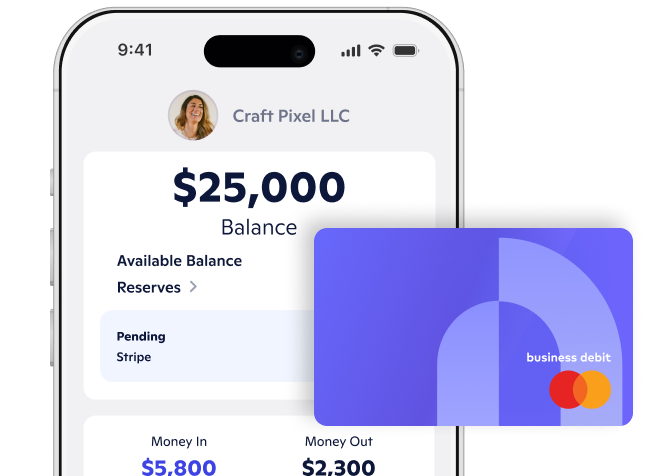
usinesses often turn to financing to help cover large purchases, secure inventory, or meet other financial needs. One such financing option is a business line of credit, which allows you to draw from a credit line at any time and only pay interest on what you borrow.
Opening a line of credit might make sense if you need ongoing access to funds for business expenses. Depending on your business's needs, it may not be the best financing option available.
Banks and other lenders offer several alternatives to a business line of credit that could be a better fit depending on your needs. Keep reading to learn more about business lines of credit and other options to consider for business funding.
What is a business line of credit?
A business line of credit is a type of business loan. It allows businesses to access a line of revolving credit to borrow money as needed for business-related expenses. Companies can use all or a portion of the revolving line of credit at any time, similar to a credit card.
Unlike a loan, lenders only charge interest on the portion of the credit line used, not the total line received. As you borrow from your line, you will repay those funds over time – typically weekly or monthly, depending on your lender.
Types of business lines of credit
There are a few types of business lines of credit that lenders offer:
- Secured lines of credit: This type of credit line requires borrowers to provide collateral to secure financing. Collateral could be in the form of equipment, receivables, inventory or personal assets. Secured lines of credit are typically easier to qualify for and a good option if your business hasn't been in operation for very long.
- Unsecured lines of credit: With an unsecured line of credit, you won't need to worry about providing collateral. Instead, lenders consider how long you've been in business, your business and personal credit scores, your annual revenue, and other factors in determining eligibility. Established companies with excellent credit often qualify for low interest rates and better terms.
Pros and cons of a business line of credit
Like other types of financing, business lines of credit have benefits and drawbacks. Consider the following pros and cons before applying for a business line of credit.
Pros
- Quick funding: Borrowers often have access to their line of credit as quickly as the same business day after approval.
- It doesn't require asking for a large lump sum of money: Unlike a loan, you don't need to access the total amount of the line or pay interest on the total – only what you borrow.
- Better interest rates and terms than credit cards: Business lines of credit often offer lower interest rates than you’ll find with business credit cards.
Cons
- May require collateral: Secured business lines of credit require you to put up collateral that can include business and personal assets.
- Costly fees: Business lines of credit are known for coming with various fees, including origination fees, maintenance fees, inactivity fees, and a fee each time you draw from your credit line.
- Low borrowing limits: Business lines of credit often carry lower borrowing limits than other financing options. (Limits depend on the lender.)
Reasons why it might make more sense for a business to look elsewhere for funding
A business line of credit is a great option for some small businesses, especially if you don't need access to a large sum of money all at once or have ongoing business needs. However, it's not always the best choice, especially with the availability of other financing options. Here are some reasons why a business line of credit might not suit you.
- You don’t want to borrow against your assets: If you only qualify for a secured line of credit, you'll need to use business or personal assets as collateral to secure financing.
- Your credit score isn’t high enough: You may not have the personal or business credit profile required to secure a business line of credit or only qualify by proving collateral.
- You need a large sum of money: Lines of credit often carry smaller borrowing limits than business loans or other types of financing.
Top Alternatives to a Business Line of Credit
Term loans
If you need access to more funds immediately and want to pay them off over time, a term loan might be a better option. Terms loans are fixed-rate installment loans available through a bank, credit union, or private lender. You must meet credit and other requirements to qualify for a term loan, which can be challenging if you don't have established credit.
Pros
- Predictable monthly payments
- Can qualify for lower interest rates with good to excellent credit
- Helps to build your company’s credit
Cons
- More stringent credit requirements
- May require collateral
- Rigorous application process
Merchant cash advance
A merchant cash advance provides quick funding to help cover expenses. You can use MCA funds in several ways, including for equipment purchases, restocking, employee recruiting, and other short-term needs.
Merchant cash advances use a factor rate fee structure, which multiplies your advance total by a percentage-based fee to calculate your total repayment amount.
Pros
- Typically fast to fund
- No collateral required
- High approval rates
Cons
- Higher rates than some financing options
- More frequent payments
- Typically not available for businesses that don't accept credit card payments
Equipment or inventory financing
You can take out an equipment loan if you need to purchase new equipment for your business but don't have the necessary funds upfront. It's an asset-based loan, so the equipment acts as the collateral, although some lenders may require other collateral or a down payment on the equipment to secure a loan.
Pros
- Can improve your credit score
- Generally fast to fund
- Preserves your working capital and cash flow
Cons
- May require a down payment
- Uses the equipment or inventory as collateral
- Usage is restricted to equipment
Invoice factoring
Invoice factoring is a form of financing that allows businesses to leverage unpaid invoices to secure working capital quickly. This is an option to consider if your company has considerable gaps between invoicing and receiving customer payments.
You’ll sell your outstanding invoices to a factoring company, which will then pay you an advance on the invoice value. The factoring company will proceed with collecting on those invoices. Once the factor has collected payment from the customer, it will send you the remainder of the invoice value minus a factoring fee. This is a solid option for businesses
Pros
- Fast funding
- Generally fewer eligibility requirements than traditional loans
- No collateral needed
Cons
- Factoring fees can be costly
- Release of collection control to a third party
- Doesn't apply to businesses that don't use invoicing
SBA Loans
SBA loans are small business loans available through approved lenders and backed by the U.S. Small Business Administration (SBA). Loan amounts vary between lenders from as low as $500 to $5 million or more. SBA loans also feature capped interest rates.
Pros
- Broad borrower requirements
- Capped interest rates
- Borrower support through the Small Business Administration
Cons
- Typically requires a down payment
- May require collateral
- Lengthy approval process
What's the Best Option for Your Business?
Business lines of credit are helpful for certain types of businesses but may not be suitable for you. Analyze your business needs and finances to determine which financing is best for you. Shop around to find the best rates and terms, verifying that you qualify for lending through the bank or lender.
Novo Platform Inc. strives to provide accurate information but cannot guarantee that this content is correct, complete, or up-to-date. This page is for informational purposes only and is not financial or legal advice nor an endorsement of any third-party products or services. All products and services are presented without warranty. Novo Platform Inc. does not provide any financial or legal advice, and you should consult your own financial, legal, or tax advisors.
%201.png)
.png)




